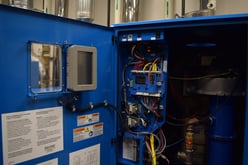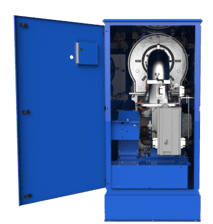The Importance of Seasonal Boiler Maintenance
[fa icon="calendar'] Dec 5, 2025 11:00:00 AM / by Patterson-Kelley posted in Boiler, Condensing Boilers, Hydronic Boilers, boiler maintenance
Using Glycol in Aluminum Boilers
[fa icon="calendar'] Jun 23, 2021 9:39:28 AM / by Patterson-Kelley posted in Boiler, Condensing Boilers, Water Quality, Condensing, aluminum boilers, commercial boilers, watertube, Boiler Design
Boiler water applications can vary in both size and complexity, but one thing is consistent, the additives used in your comfort heating water are specific to the system you are supplying them to. When selecting additives such as glycol, knowing your boiler type, material, and that of the adjacent piping is imperative. Different glycols are designed for varied equipment materials, aluminum, for example, so knowing this information beforehand can save you and your facility a significant amount of time and money.
Water Tube vs. Fire Tube Heating Design
[fa icon="calendar'] Oct 21, 2020 8:30:00 AM / by Patterson-Kelley posted in Boiler, aluminum boilers, commercial boilers, stainless steel boilers, watertube, Firetube, Boiler Design, combustion
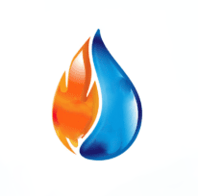 It’s a question as old as the heating designs themselves— Which is superior, water tube or fire tube boilers? While both technologies have developed enormously throughout their lifetime, both water tube and fire tube designs possess certain inherent benefits and shortcomings. In this blog, we will highlight what makes these two boiler styles unique, putting a magnifying glass to the advantages and disadvantages of each design.
It’s a question as old as the heating designs themselves— Which is superior, water tube or fire tube boilers? While both technologies have developed enormously throughout their lifetime, both water tube and fire tube designs possess certain inherent benefits and shortcomings. In this blog, we will highlight what makes these two boiler styles unique, putting a magnifying glass to the advantages and disadvantages of each design.
What is Short-Cycling and How Can You Prevent it?
[fa icon="calendar'] Mar 13, 2020 2:30:00 PM / by Patterson-Kelley posted in Insider, Boiler, Condensing Boilers, Hydronic Boilers, Non-Condensing Boilers, Condensing Water Heaters, Condensing, aluminum boilers, commercial boilers, stainless steel boilers, 10:1 turndown
Short cycling occurs when a boiler powers down before being able to complete a typical boiler cycle and is called upon to satisfy a second call for heat, in quick succession. A typical boiler cycle consists of firing, post purge, idle period, pre-purge and then back to firing. Boiler short cycling can be seen in two critical areas; mechanical and economic.
In this blog, we discuss how this affects the boiler and how we can mitigate short cycling and losses incurred from it.
Commercial Hybrid Heating Systems, Explained in Less Than 700 Words!
[fa icon="calendar'] May 31, 2019 8:31:08 AM / by Patterson-Kelley posted in Boiler, Condensing Boilers, Hydronic Boilers, Non-Condensing Boilers, Condensing, commercial boilers
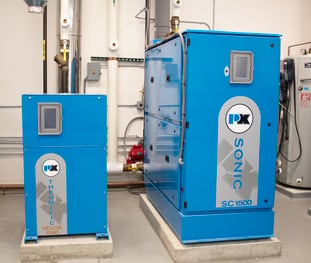 Eventually, all commercial heating systems need to be replaced – and whether you replace one unit, or five, it will require a significant investment in time and money. In upgrading your system with the latest technology can offer in condensing equipment, high system efficiency, building management and connectivity, the cost to retrofit your boiler room can escalate quickly.
Eventually, all commercial heating systems need to be replaced – and whether you replace one unit, or five, it will require a significant investment in time and money. In upgrading your system with the latest technology can offer in condensing equipment, high system efficiency, building management and connectivity, the cost to retrofit your boiler room can escalate quickly.
Variable Primary OR Primary-Secondary Piping
[fa icon="calendar'] Apr 30, 2019 1:53:10 PM / by Patterson-Kelley posted in Boiler, Condensing Boilers, Hydronic Boilers, Non-Condensing Boilers, Variable Primary Piping, Primary-Secondary Piping
Hydronic Boilers Piping Arrangements
Just like we would debate over sports, music, or politics, engineers have long held strong opinions about piping arrangements for hydronic heating systems. Which is better: Primary-Secondary or Variable Primary? They each have their benefits, but most boiler manufacturers tend to side with Primary-Secondary. Wouldn’t it be nice to have a different choice?
Turning Up Turndown
[fa icon="calendar'] Dec 27, 2018 2:14:15 PM / by Patterson-Kelley posted in Boiler, Condensing Boilers, Hydronic Boilers, Condensing, aluminum boilers, commercial boilers, turndown, 10:1 turndown, low turndown, turndown ratios, high turndown, 5:1 turndown
Commercial Boiler Efficiency
 Placing system efficiency at the forefront of commercial boiler acquisition continues to be a trend in the heating and water heating industry. Manufacturers are racing ahead to push the limits of technology by offering aggressive turndown capabilities approaching, and even exceeding 20:1, at the detriment of system efficiency.
Placing system efficiency at the forefront of commercial boiler acquisition continues to be a trend in the heating and water heating industry. Manufacturers are racing ahead to push the limits of technology by offering aggressive turndown capabilities approaching, and even exceeding 20:1, at the detriment of system efficiency.
Benefits of Stainless Steel Commercial Boilers
[fa icon="calendar'] Nov 29, 2018 2:37:57 PM / by Patterson-Kelley posted in Boiler, Condensing Boilers, Hydronic Boilers, Direct-fired, Condensing, commercial boilers, stainless steel boilers
Stainless Steel Heat Exchangers
Stainless steel has increased in popularity over time due to its success in a number of different environments and applications. Stainless steel commercial boilers have proven to be reliable and efficient in both retrofit projects and new installations.
If you are curious to learn why stainless steel has gained popularity in the heating industry, Patterson-Kelley has compiled a list for you that includes the top three benefits of owning a stainless steel commercial boiler.
Breaking the Stigma on Aluminum Commercial Boilers
[fa icon="calendar'] Oct 24, 2018 4:42:00 PM / by Patterson-Kelley posted in Boiler, Condensing Boilers, Water Quality, Hydronic Boilers, Direct-fired, Condensing, aluminum boilers, commercial boilers
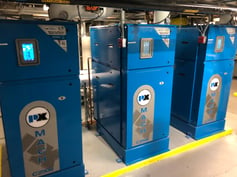
Changing the Perception of Aluminum Commercial Boilers
The commercial heating industry has faced an ongoing debate on the benefits of stainless steel heat exchangers versus aluminum heat exchangers. The process of choosing a new boiler has become confusing for both building owners and engineers.
Best Boiler Maintenance Practices
[fa icon="calendar'] Jul 23, 2018 1:55:21 PM / by Patterson-Kelley posted in Boiler, Condensing Boilers, Water Quality, Hydronic Boilers, Non-Condensing Boilers
Why Annual Maintenance?
Like changing the oil of your Ferrari F60 every 3,000 miles, all heating equipment, both boilers and water heaters, require annual maintenance. No matter the life expectancy of a heating system, ‘WEAR & TEAR’ will interfere with the performance of your heating equipment.

